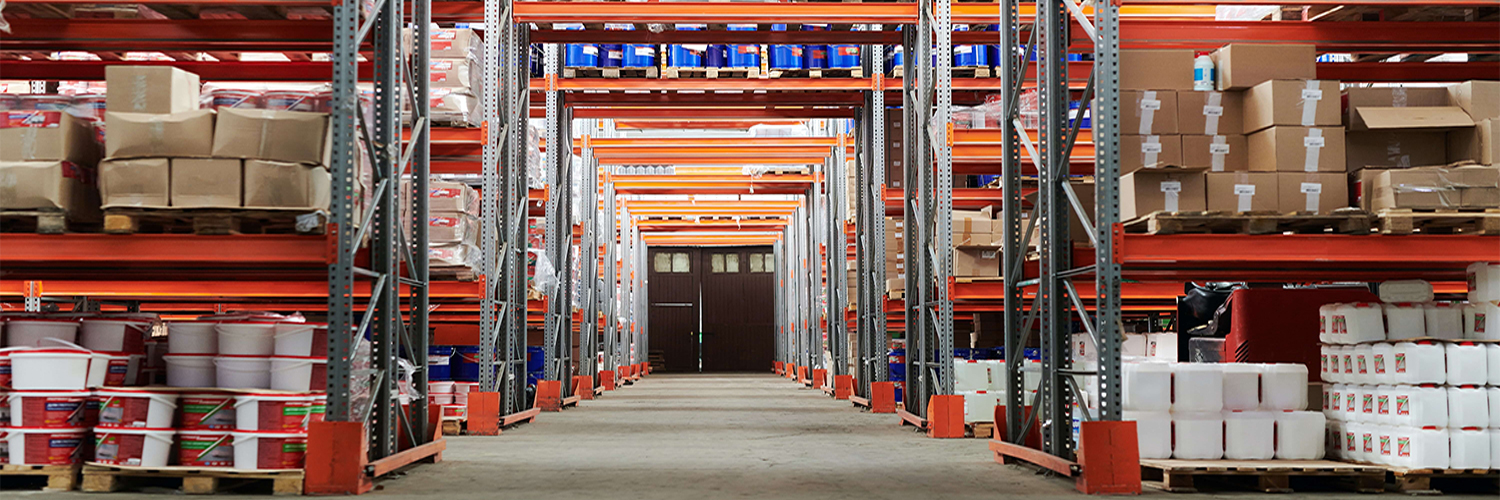The Rise of eCommerce
The Amazon Effect, the Covid pandemic, the relentless march of time… It doesn’t really matter how you explain it: the rise of eCommerce is an undeniable fact that retailers of all sizes must deal with if they hope to maintain their competitive edge and grow their market share.
Customer expectations have evolved, putting pressure on brick-and-mortar retailers to develop new sales channels. Convenience, same-day shipping, and easy return processes are now the name of the game in the retailing industry. To meet those expectations, supply chains and fulfillment services everywhere have had to adapt. Some, like Amazon and Ocado, rely on fully automated infrastructure. Others have turned to more accessible technology solutions.
Obviously, not every retailer out there has the financial means of an Amazon or Ocado. The truth is that most cannot afford the infrastructure and technology solutions required for efficient B2B and/or D2C operations. In the era of multichannel operations, many retailers who want to develop their business will have to rely on 3PL or fulfillment services.
Seeing that, a number of companies have made it their business to offer such services. With so many options on the market, retailers must know what to look for in a fulfillment partner at the risk of seeing their margins melt away or, worse, their customer base shrink for lack of good service.
Below, we help retailers achieve their goal of omnichannel efficacy by pointing out what they should look for in their future 3PL or fulfillment services.
What to Look for in a 3PL or Fulfillment Services Provider
Large marketplace providers like Amazon have embraced eCommerce by offering their own warehousing and fulfillment services. Amazon got in the game early on to offer warehousing and fulfillment services to its vendors who sell on its marketplace under its Fulfilled by Amazon (FBA) program. The company offers similar services – called Multi-Channel Fulfillment (MCF) – to manufacturers, brands, and sellers that don’t leverage Amazon’s marketplace.
That being the case, fulfillment services have largely been the domain of 3PLs. Needless to say, not all 3PLs were created equal when it comes to eCommerce expertise and omnichannel efficacy. Given the central role a fulfillment partner plays in the customer’s journey and overall satisfaction, retailers cannot afford to choose a 3PL that lacks the means to meet their clients’ expectations.
Outsource Your Multichannel Fulfillment Processes
Here are key elements to look for when looking to outsource your multichannel fulfillment processes to a 3PL or fulfillment service provider.
Managing End-to-End Fulfillment | A full-service warehousing solution and fulfillment specialist must be able to: receive and store inventory in their facilities; process orders; efficiently perform picking and packing; and ship orders on time.
Their processes must support the critical stages of the customer journey, from the initiation of the order by the customer to the delivery of the package or shipment – whether that’s at the customer’s doorstep, BOPIS, or another commercial destination.
Reverse Logistics | First-rate reverse logistics capabilities are essential to the success of eCommerce retailing activities. Easy return processes play a large part in securing a customer’s trust and loyalty, which goes a long way toward building a larger clientele.
Efficient reverse logistics is equally critical to good inventory management and minimizing shrinkage, both of which help retailers protect their margins.
Real-Time Order Management |To achieve “same-day shipping” and deliver their goods on time, retailers need their ERP system and/or OMS to communicate with their 3PL’s Warehouse Management System (WMS) in real-time.
Any fulfillment partner worthy of consideration will have a robust WMS that can reference orders by customer name, order number, destination, and/or tracking number – traceability capabilities are a must for retailers in the Food & Beverage industry.
Automation | A robust software architecture that enables the automation of processes in the distribution center (DC) is a non-negotiable requirement. Multichannel distribution centers do not all require a fully automated physical infrastructure like Amazon to run an efficient operation, but a moderate level of process automation is necessary.
Obviously, if the 3PL boasts material handling equipment that includes robots and automated conveyors, all the better! Retailers should keep in mind, however, that such levels of maturity come at a price.
Scalability | Retailers should ask about the service provider’s average customer onboarding time when seeking proposals. Given the labor shortages that have plagued the warehousing and transportation industry, it’s a good idea to look for 3PLs that have a scalable labor force to help manage seasonal peaks and valleys in shipping volumes.
It’s never a bad idea to inquire about customer histories for critical metrics, such as order fill rates, inventory accuracy, and on-time shipping during peak seasons.
Customization and Value-Added Services | Retailers with specific packaging and shipping requirements should verify that the needed services are offered. Fulfillment specialists can typically tailor individual orders to the customer’s requirements and provide custom-branded packaging unique to a retailer’s brand.
However, some services are not covered by all fulfillment partners, such as customized notes or special packaging for VIP customers and high-value orders. Retailers who need value-added services (e.g.: subscription box orders, light assembly and kitting, and apparel services) will do well to define their requirements and include those in their RFP.
The Common Denominator to All Good Fulfillment Partners: A Robust Warehouse Management Systems (WMS)
The warehousing capabilities required of a 3PL or fulfillment service are simply unattainable without a Warehouse Management System (WMS). A WMS is necessary for the implementation of warehouse management best practices in the distribution center. It is all the more so in an environment that deals with a high number of SKUs from various sellers and operates across more than one channel.
Without it, a distribution center cannot operate efficiently that manage fulfillment from multiple sales channels; high volumes of single-item orders at the same time as small orders; complex and varied picking processes; and numerous shipping options. In the case of retailers who operate in the Food and Beverage industry, the traceability capabilities of better WMS solutions have become indispensable – and expected by customers.
As B2B and D2C retail companies explore the means to open new sales channels, whether that’s in-house or through the services of a fulfillment partner, they need to pay particular attention to the WMS solution that will empower them to achieve omnichannel efficacy.









评论